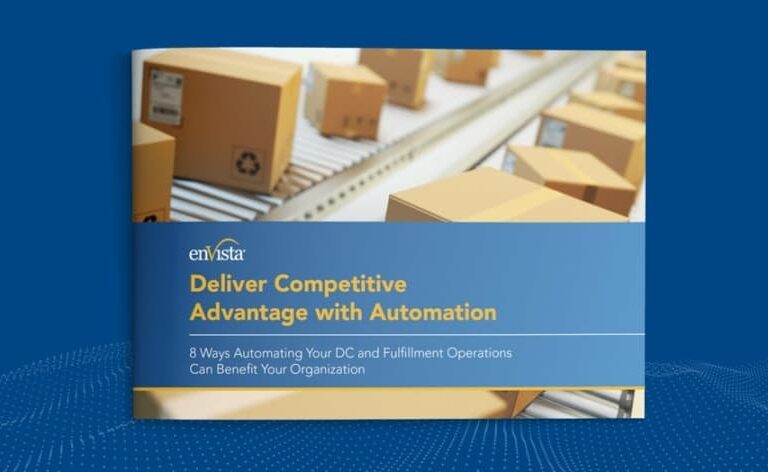As artificial intelligence (AI) continues to advance, more businesses are preparing for the possibility of an AI-powered supply chain. Integrating AI in retail requires careful planning, but once you’ve developed a strategy and invested in this new technology, you’ll be ahead of the curve while your competitors lag behind.
This blog explores 10 critical steps retailers should take when preparing to implement AI within their organization and explains how the right consulting partner can help. We’ll also highlight cutting-edge software, such as Evo for pricing and JustEnough for dynamic retail planning and execution, from ToolsGroup, an AI-powered supply chain and retail planning solution provider.
1. Establish a Clear Strategy
Before jumping on the AI bandwagon, it’s critical to establish a clear strategy, including business goals, pricing strategies, revenue objectives, market dynamics and competitor positioning. With hundreds of AI tools available, it’s important to choose software that meets your needs and aligns with your business goals.
For example, AI can analyze each customer’s profile, past purchases and demographics, and use that information to make predictions. It can also enable dynamic demand forecasting and inventory allocation to ensure the right inventory is always in the right place at the right time.
To enable a successful implementation, partner with a consultant, such as enVista, that’s strategy-focused and will collaborate closely with your leadership team to establish a clear AI strategy.
2. Invest in Data Management
Your company’s data is one of the main resources that AI will draw from. If you are ready to start using AI tools such as JustEnough Dynamics Retail Planning & Execution, you’ll need quality, accessible and secure data across inventory, stores, distribution centers, customer demographics and more.
enVista can analyze and adjust your company’s data strategy to be AI-ready via comprehensive data management solutions, including data collection, aggregation, storage and governance. We’ll help you select a data governance model, such as a process-first, technology enablement approach that aligns people, processes and technology.
3. Develop In-House Expertise
Hiring AI specialists is an essential part of technology integration. Having AI expertise within your organization will create a more enduring solution post-implementation. Invest in a person or team that will continually monitor the AI system and proactively and retroactively solve any problems or glitches that may arise.
AI specialists can also train your employees to use the models to their full potential. Once AI plays a major role in your department, you’ll need cross-functional upskilling to keep everyone on board.
When selecting your implementation partner, choose one with a team that specializes in building internal expertise through talent acquisition, upskilling programs and change management.
4. Select the Right Tools and Partners
To ensure you select the right tool for your unique business case, complete a detailed audit of your organization’s people, processes and technology and use it to drive your vendor research.
Start by compiling your specific business objectives and challenges, technical requirements and constraints and support and training needs. Then look for these qualities in a technology vendor:
- The ability to scale with business growth
- Compatibility with your existing capabilities
- Ease of integration with existing software
- Experience and proven results in your industry
- 24/7 support
Off-the-shelf models are typically cheaper and come with extensive support and documentation. However, if your business has specialized needs, a custom model could help you maximize productivity and achieve a faster ROI.
5. Data Security and Compliance
AI in the retail market offers numerous benefits, but it also presents some risks. If a cybercriminal breaks into your AI system, your business is vulnerable to credit card theft, supply chain disruptions, POS data leaks and more. For your customers’ safety, it’s essential to protect that data.
You can leverage secure AI in your retail processes by implementing robust security measures, including encryption and access controls, and adhering to data protection regulations, such as GDPR and CCPA. This ensures customer data is safeguarded and compliant while utilizing AI and machine learning tools effectively.
enVista can offer guidance on what measures your retail organization needs to take to leverage AI securely, and we can even implement those measures for you to ensure they’re comprehensive and reliable.
6. Piloting and Testing
An expansive AI rollout can be costly in money, time and resources. Pilot projects and rigorous testing will help you get the most out of that investment.
An AI pilot program will allow you to understand how AI will truly impact your processes once in place and inform the rest of your rollout. Most importantly, it will allow you to iron out any issues that may arise before moving forward, saving you from costly mistakes that would require costly resolutions.
enVista’s consultants have vast experience in assisting retailers with designing and executing pilot projects. Our experience in analyzing results ensures that retailers can make informed decisions about scaling AI initiatives before getting too far into the process.
7. Enhance Customer Experiences
Every decision a retailer makes should be viewed through the customer’s lens, including whether to implement AI. Whether through personalized shopping experiences, AI-powered communication, customer feedback analysis, smart shelves, RFID technology or other options, AI is supposed to take existing customer data and experiences and enhance them for maximum convenience and satisfaction.
Take a client-centered approach to AI, such as using AI chatbots to provide faster answers to customer questions, personalizing website content based on customer demographics, and providing predictive product recommendations that can increase sales.
8. Streamline Operations
AI works best when it is implemented into streamlined operations. Murky processes that are not well operated or maintained will only be exacerbated by adding new technology to the mix. Before considering what AI you might want to introduce to your organization, conduct a detailed audit of your supply chain network.
You can use AI for a variety of functions, including inventory management, demand forecasting and automated replenishment. This helps you create a steady supply chain that drives bottom line savings and a competitive position.
9. Data-Driven Decision Making
It’s essential to have a culture of data-driven decision making within your organization. This ensures decisions are based on insights generated by AI algorithms, fostering agility and adaptability in a rapidly changing market.
Cutting edge AI tools like EVO Pricing are a great way see results from your data-informed decisions quickly and scale them rapidly. enVista’s consultants are data experts and can help you leverage your insights to inform each new decision you make.
10. Continuous Learning and Adaptation
The world of AI is continually evolving. While a successful implementation is critical, it’s just the beginning of your AI journey. Once you have implemented AI into your retail organization, you’ll embark on the evergreen journey of continuous improvement.
As the seasons change and new trends enter the market, you’ll need to regularly audit and retrain your models to ensure they’re working with up-to-date information. Otherwise, they could make weak predictions, fail to protect your customers’ sensitive data or cause a controversy.
As a trusted consulting partner, enVista is poised to guide retailers through each step of the process while leveraging specific tools, such as Evo and JustEnough. With enVista’s expertise and industry knowledge, retailers can establish clear strategies, invest in robust data management, develop in-house expertise, select the right tools, prioritize data security and compliance and embrace a culture of continuous learning.






